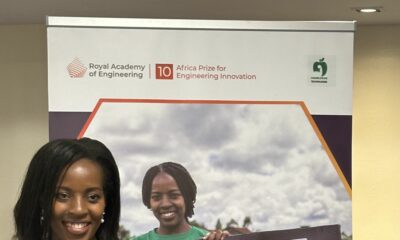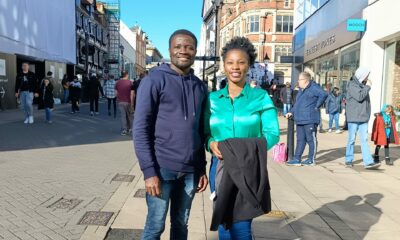Features
African Innovators Shortlisted for the 10th Africa Prize for Engineering Innovation

For its 10th edition, the UK’s Royal Academy of Engineering Africa Prize for Engineering Innovation (APEI) has selected four finalist innovators from Kenya, Côte d’Ivoire and Uganda to compete for the £50,000 Africa Prize, the continent’s largest engineering prize.
From the shortlist of 16, the four finalists have developed solutions including an environmentally-friendly roofing material made from recycled plastic, a smart healthcare platform providing direct access to vital healthcare information via WhatsApp, a location-based mobile app connecting customers to independent agents for on-demand rubbish collection and disposal, and a solar-powered tool using AI and machine learning-enabled cameras to detect and identify agricultural pests and diseases.
This year’s winner will receive a prize of £50,000, with the other three finalists receiving £15,000 each. The prize is double the amount of previous years in recognition of the Africa Prize’s tenth anniversary. The other shortlisted innovators will also be given one minute each to present their innovations, and an audience poll will select one of them to receive an award of £5,000. This prize, the ‘One to Watch’, is awarded in honour of an alumnus of the Africa Prize, Martin Bruce, co-founder of Young at Heart who passed away.
Meet the finalists:
Esther Kimani
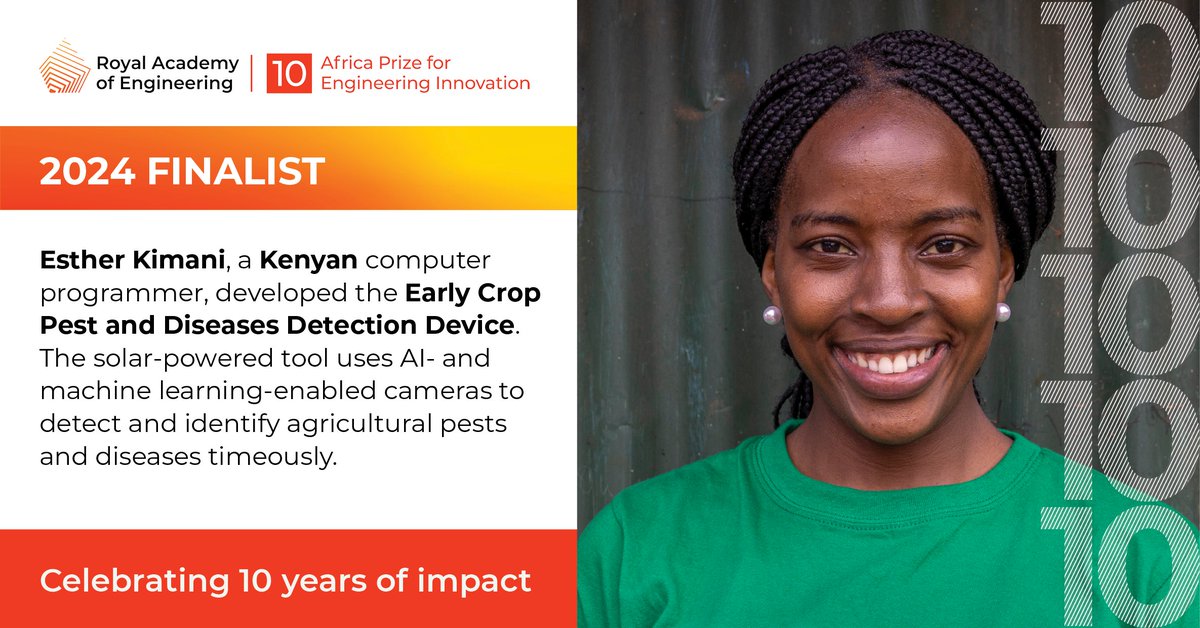
Esther Kimani developed a solar-powered tool utilising AI and machine learning-enabled cameras to swiftly detect and identify agricultural pests and diseases, reducing crop losses for smallholder farmers by up to 30% while increasing yields by as much as 40%. Kimani’s innovation not only provides real-time alerts within five seconds of an infestation, offering tailored intervention suggestions but also alerts government agricultural officers to the presence of diseases or pests, contributing to broader agricultural management efforts. This affordable alternative to traditional detection methods leases for just $3 per month, significantly cheaper than hiring drones or agricultural inspectors, and also provides valuable data for policymakers through an agricultural live-tracking data dashboard.
Rory Assandey
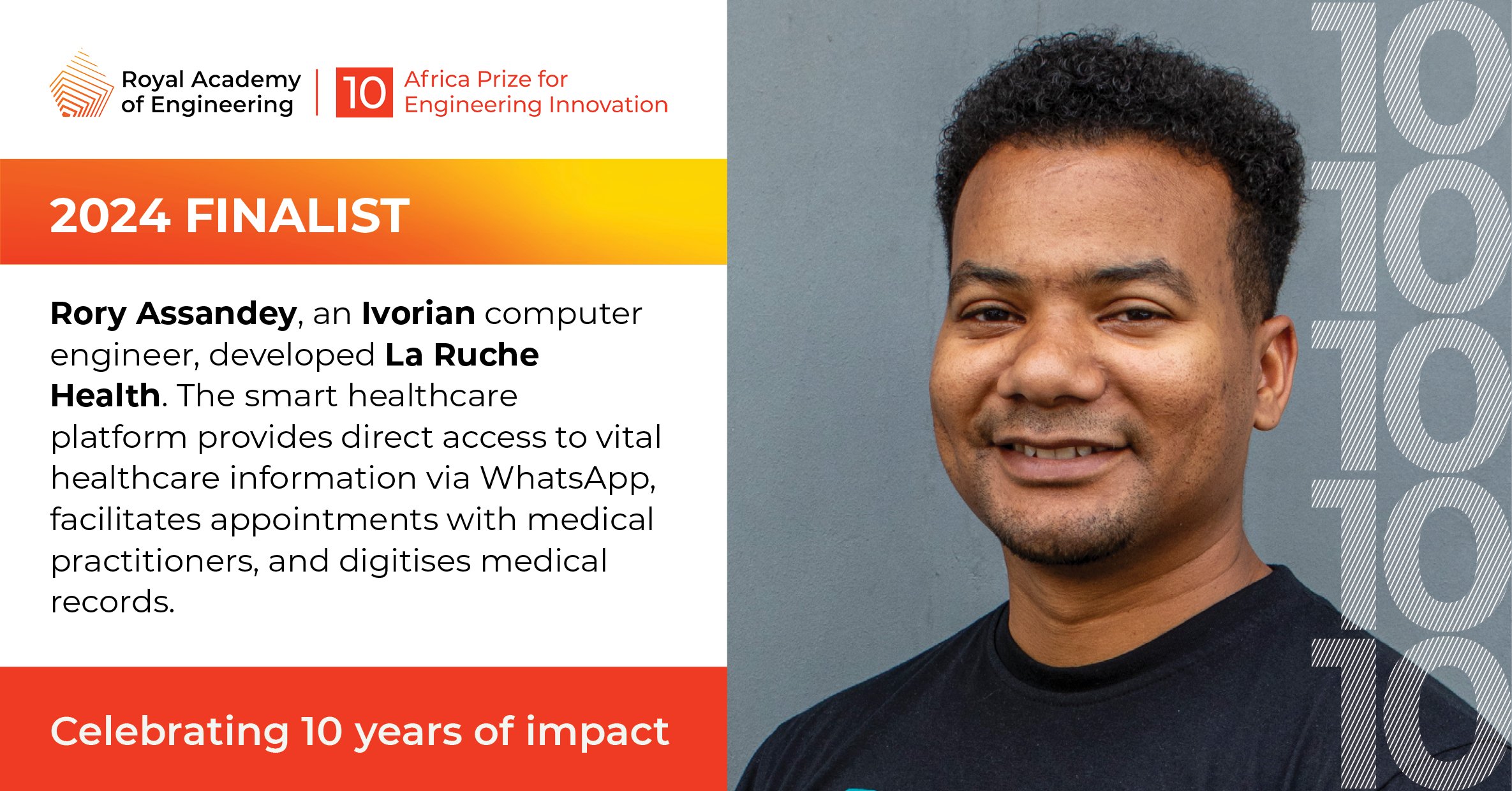
Rory Assandey developed La Ruche Health which connects communities to vital health information, advice, and services through “Kiko”, an AI chatbot tool available on WhatsApp and mobile apps, and a digital backend solution to streamline documentation, billing, and data sharing for practitioners. Recognising the fragmented healthcare network in Côte d’Ivoire, La Ruche Health addresses accessibility barriers for 43% of the population with limited literacy skills. Kiko serves as the patient’s initial point of contact, offering personalised screening and facilitating appointments with qualified healthcare professionals. By May 2024, the AI has facilitated over 150,000 user interactions and 189 in-home and teleconsultation appointments, processing over $18,000 in medical billings, illustrating its effectiveness and scalability.
Martin Tumusiime
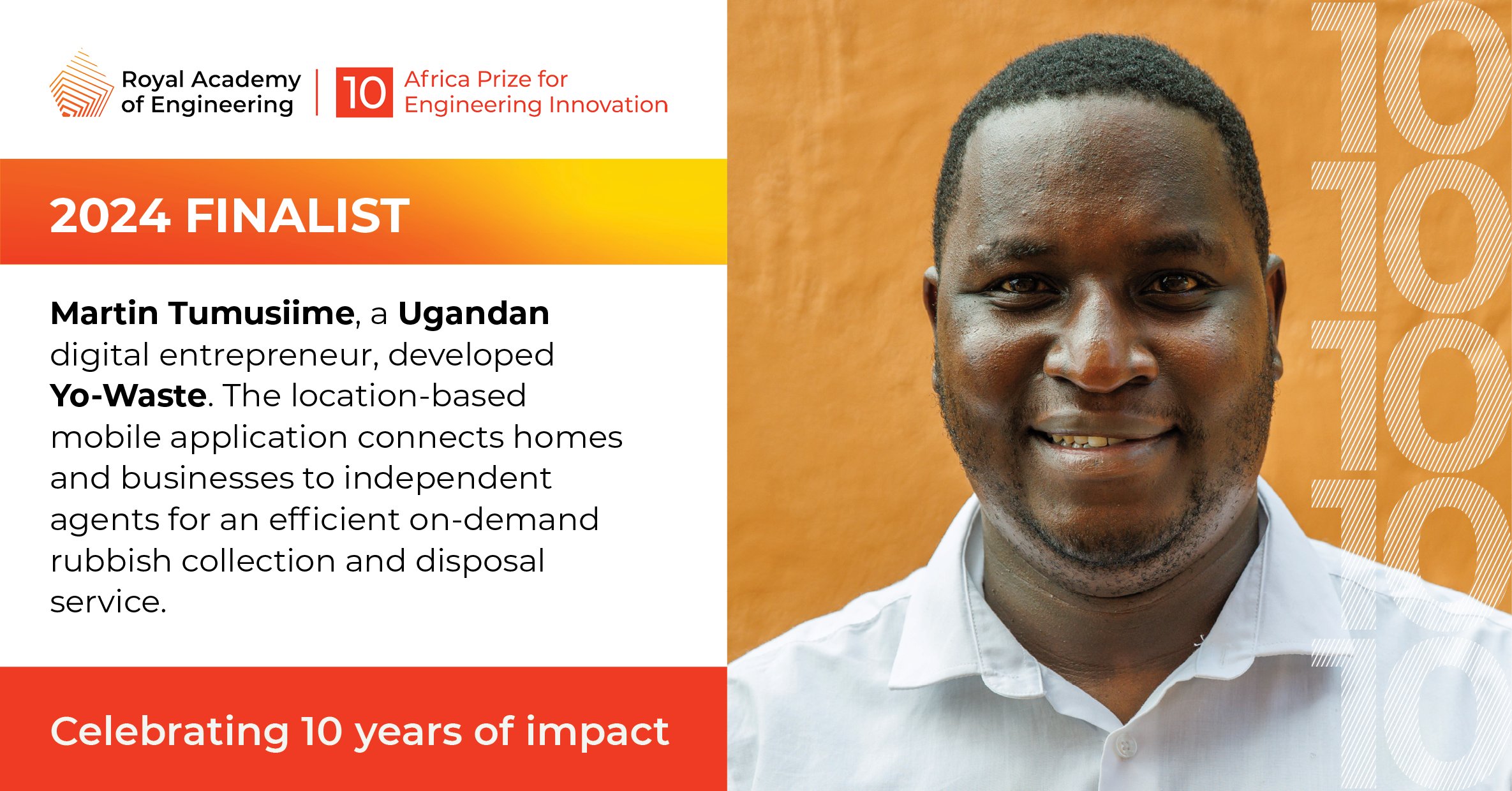
Martin Tumusiime developed Yo-Waste to address Uganda’s mounting waste crisis. Yo-Waste is a location-based mobile application that connects homes and businesses to independent agents for efficient on-demand rubbish collection and disposal. The technology uses routing and scheduling algorithms to optimise waste collection routes, which reduces costs and improves efficiency. It has GPS location technology to pinpoint collection points, which overcomes the challenge of people not having official addresses in informal residential areas. Yo-Waste currently serves over 1,500 customers including homes, businesses, and waste collection agents, with a goal to reach 20,000 users by 2026. With only 40% of waste disposed of properly in Africa, Yo-Waste’s innovative approach tackles environmental pollution and health hazards caused by open dumpsites.
Kevin Maina
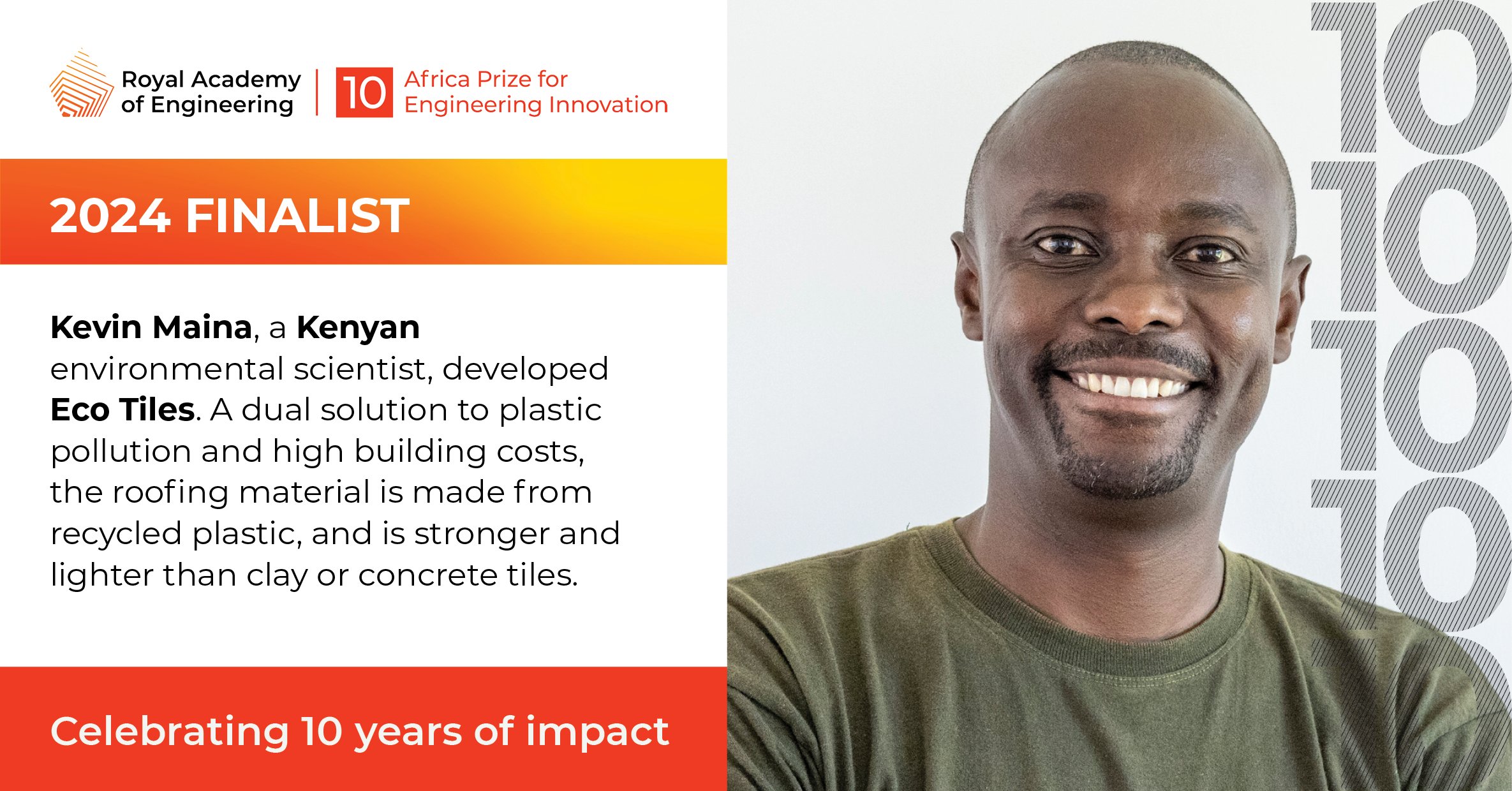
Kevin Maina developed Eco Tiles, an environmentally friendly roofing material made from recycled plastic. Stronger and lighter than clay or concrete tiles, the innovation is a dual solution to plastic pollution and high building costs. Kevin and his team work with 500 informal waste collectors who provide plastics, including high-density polymers and lighter polyethene. The innovative manufacturing process involves a custom-made extrusion machine that blends different plastics at varying temperatures, eliminating the need for energy-intensive processes like kiln-burning and reducing carbon emissions. The tiles are enhanced with UV stabilisation chemicals and construction sand to improve durability and sturdiness. With a production rate of 1,500 tiles daily, each tile is pressed in a minute. Half a million Eco Tiles have been used to date in the construction of 348 houses.
The 10th Africa Prize for Engineering Innovation will be held on 13 June 2024 in Nairobi, Kenya. You can check out all the all the shortlisted innovators here.


